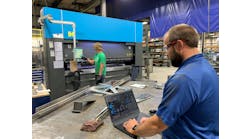In a uniquely British approach to problem-solving, the U.K.'s government is channeling the ghost of John Harrison to solve critical 21st-century problems. The Longitude Prize 2014, inspired by the 18th century competition to find a way of determining a ship’s position at sea, will ask the British public to choose one of six challenges and award the funds to a winning solution put forward within five years.
"Three hundred years ago the Longitude Act stimulated invention and drew out hidden talent, but today there are many areas where progress is still needed” says Martin Rees, chair of the Longitude Committee and Astronomer Royal. "That’s why we’ve decided the theme of Longitude Prize 2014 should be selected in response to a public vote."
The six challenges are:
- Flight. Design and build an aeroplane that is as close to zero carbon as possible and capable of flying from London to Edinburgh at comparable speed to today’s aircraft;
- Food. Invent the next big food innovation, helping to ensure nutritious, affordable and environmentally sustainable food;
- Antibiotics. Create a cost-effective, accurate, rapid, easy-to-use test for bacterial infections to enable health professionals to administer the right antibiotics at the right time;
- Paralysis. Invent a solution that gives paralyzed people close to the same freedom of movement that most of us enjoy;
- Water. Create an inexpensive, environmentally sustainable desalination technology;
- Dementia. Develop intelligent, affordable integrated technologies to care for people with dementia, enabling them to live independently.
The original Longitude prize was established by a 1714 act of Parliament and awarded in 1765 to clockmaker Harrison for his invention of a chronometer accurate enough to record time at a fixed position while at sea.
The results will be announced on June 25.



